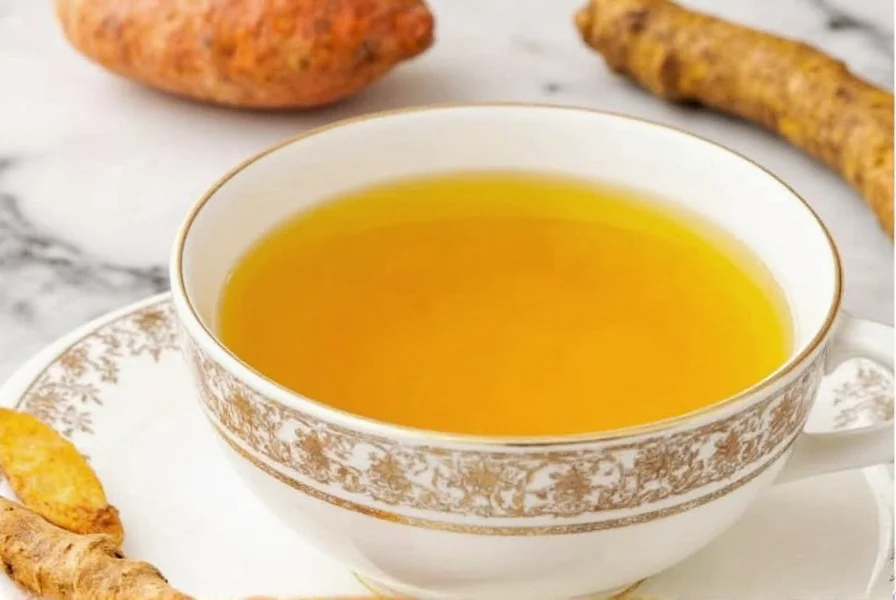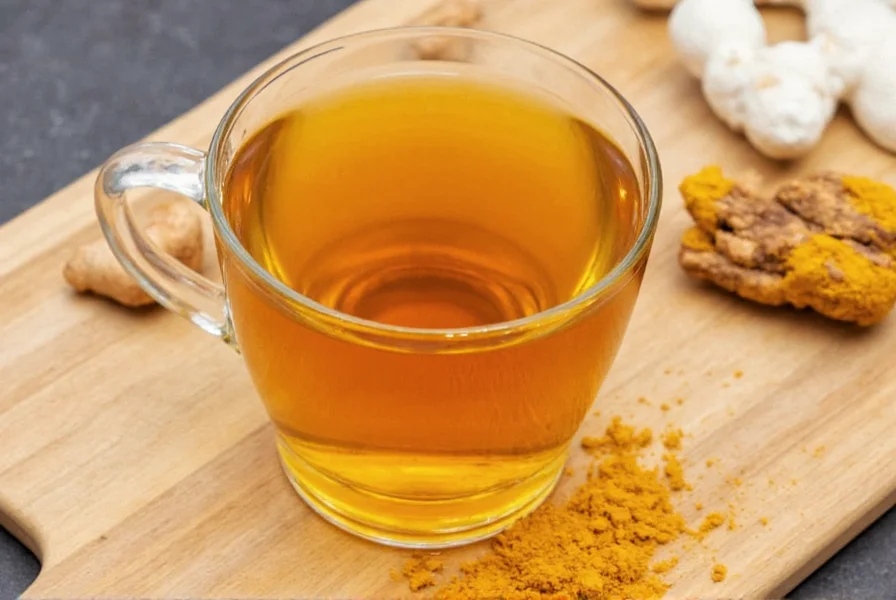Making turmeric tea at home is a straightforward process that yields a comforting beverage with potential health advantages. This golden-hued drink has gained popularity for its earthy flavor and possible wellness properties, but many people wonder about the most effective preparation methods to maximize benefits while creating a palatable cup.
The Science Behind Turmeric Tea Benefits
Turmeric contains curcumin, the active compound responsible for its vibrant color and studied properties. Research suggests curcumin may support the body's natural inflammatory response, though it's important to note that turmeric tea shouldn't replace medical treatment for health conditions. The bioavailability of curcumin significantly increases when combined with black pepper (containing piperine) and healthy fats, which is why these ingredients feature prominently in effective turmeric tea recipes.

Essential Ingredients for Perfect Turmeric Tea
Creating the best turmeric tea requires attention to ingredient quality and proportions. Here's what you'll need for a standard four-cup batch:
| Ingredient | Amount | Purpose |
|---|---|---|
| Ground turmeric | 1 teaspoon | Primary active ingredient |
| Fresh ginger | 1-inch piece, sliced | Enhances flavor and adds complementary compounds |
| Black pepper | 1/8 teaspoon | Increases curcumin absorption by up to 2000% |
| Lemon juice | 1 tablespoon | Adds vitamin C and balances earthy flavor |
| Honey or maple syrup | To taste | Natural sweetener (optional) |
| Coconut oil or ghee | 1/2 teaspoon | Fat source to improve curcumin absorption |
Step-by-Step Turmeric Tea Preparation Guide
Follow these precise instructions for making turmeric tea that maximizes both flavor and potential benefits:
- Bring 4 cups of filtered water to a gentle simmer in a small saucepan (avoid boiling)
- Add 1 teaspoon ground turmeric, 1-inch fresh ginger, and 1/8 teaspoon black pepper
- Simmer uncovered for 10 minutes to allow flavors to meld and compounds to extract
- Remove from heat and stir in 1/2 teaspoon coconut oil or ghee
- Carefully strain the mixture through a fine mesh sieve into a heat-safe container
- Add 1 tablespoon lemon juice and sweetener to taste
- Stir well and serve immediately while warm
Customizing Your Turmeric Tea Recipe
Once you've mastered the basic turmeric tea preparation, consider these variations for different needs and preferences:
- Immunity-boosting version: Add 1/2 teaspoon cinnamon and a small piece of fresh garlic during simmering
- Sleep-friendly evening tea: Omit black pepper and add 1/4 teaspoon nutmeg with 1 teaspoon ashwagandha powder
- Creamy golden milk alternative: Replace water with 2 cups almond milk and 2 cups water for a richer texture
- Cold brew option: Steep ingredients in cold water for 12 hours for a smoother, less bitter flavor profile
Timing and Frequency Recommendations
For those incorporating turmeric tea into their wellness routine, timing matters. Most people benefit from drinking turmeric tea either 20-30 minutes before meals or 2 hours after eating. The optimal frequency appears to be once daily for general wellness support, though some prefer splitting the serving into morning and evening doses. Avoid consuming turmeric tea within 2 hours of taking medications, as it may affect absorption.
Safety Considerations and Potential Interactions
While turmeric tea is generally safe for most people, certain individuals should exercise caution. Those with gallbladder issues, bleeding disorders, or taking blood-thinning medications should consult healthcare providers before regular consumption. Pregnant women should limit intake to culinary amounts rather than therapeutic doses. The recommended daily limit of curcumin from all sources is approximately 500-2,000 mg, which translates to 1-4 cups of properly prepared turmeric tea.
Turmeric Tea Storage and Freshness Tips
For those preparing turmeric tea in larger batches, proper storage maintains quality. Store cooled tea in a glass container in the refrigerator for up to 3 days. When reheating, avoid boiling as this can degrade beneficial compounds. For longer storage, freeze portions in ice cube trays then transfer to freezer bags for up to 3 months. Always check for any off smells or discoloration before consuming stored tea.
Frequently Asked Questions About Making Turmeric Tea
How much turmeric should I use per cup of tea?
For optimal results when making turmeric tea, use 1/4 teaspoon of ground turmeric per cup of water. This provides sufficient curcumin without creating an overly bitter or staining beverage. When preparing a standard 4-cup batch, 1 teaspoon of turmeric offers the right balance of potency and palatability.
Why add black pepper to turmeric tea?
Black pepper contains piperine, which increases curcumin absorption by up to 2,000%. Without this addition, your body absorbs less than 1% of the curcumin in turmeric. Just 1/8 teaspoon of black pepper per 4-cup batch significantly enhances the potential benefits of your turmeric tea without noticeably affecting the flavor.
Can I use fresh turmeric root instead of powder?
Yes, fresh turmeric root makes excellent tea with potentially higher curcumin content. Use a 2-inch piece of fresh turmeric (about 1 tablespoon grated) per 4 cups of water. Peel and thinly slice or grate the root before simmering. Fresh turmeric provides a brighter, more complex flavor but may stain surfaces more than powdered turmeric.
How long should I simmer turmeric tea for maximum benefits?
Simmer turmeric tea for exactly 10 minutes for optimal extraction of beneficial compounds without degrading curcumin. Longer simmering (beyond 15 minutes) can break down curcumin, while shorter times don't fully extract the active components. Maintain a gentle simmer rather than a rolling boil to preserve the delicate compounds.
Does turmeric tea interact with medications?
Turmeric may interact with blood thinners, diabetes medications, and certain chemotherapy drugs. If you take prescription medications, particularly for blood clotting disorders or diabetes, consult your healthcare provider before making turmeric tea a regular part of your routine. The compounds in turmeric can enhance the effects of these medications, potentially causing adverse reactions.











 浙公网安备
33010002000092号
浙公网安备
33010002000092号 浙B2-20120091-4
浙B2-20120091-4